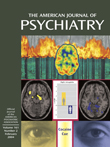Cognitive Function Across Manic or Hypomanic, Depressed, and Euthymic States in Bipolar Disorder
Abstract
OBJECTIVE: The study aims were to address neuropsychological functioning across different states of bipolar illness and to determine relationships among clinical features, neuropsychological performance, and psychosocial functioning. METHOD: Several domains of cognitive function were examined in 30 depressed bipolar patients (DSM-IV criteria for major depression, Hamilton Depression Rating Scale score ≥17), 34 manic or hypomanic bipolar patients (DSM-IV criteria for manic or hypomanic episode, Young Mania Rating Scale score ≥12), and 44 euthymic bipolar patients (6 months of remission, Hamilton depression scale score ≤8, and Young Mania Rating Scale score ≤6). The comparison group consisted of 30 healthy subjects without history of neurological or psychiatric disorders. A neuropsychological battery assessed executive function, attention, and verbal and visual memory. RESULTS: The three groups showed cognitive dysfunction in verbal memory and frontal executive tasks in relation to the comparison group. Low neuropsychological performance was associated with poor functional outcome. Impairment of verbal memory was related to the duration of illness and the numbers of previous manic episodes, hospitalizations, and suicide attempts. CONCLUSIONS: A poorer performance was observed in all bipolar groups regarding executive function and verbal memory in relation to the healthy comparison subjects. These cognitive difficulties, especially related to verbal memory, may help explain the impairment regarding daily functioning, even during remission. Further studies should focus on testing, whether optimizing prophylactic pharmacological treatment and psychoeducation might reduce cognitive impairment, and whether bipolar patients would benefit from neuropsychological rehabilitation in order to reduce the impact of cognitive impairment in their overall functioning.



